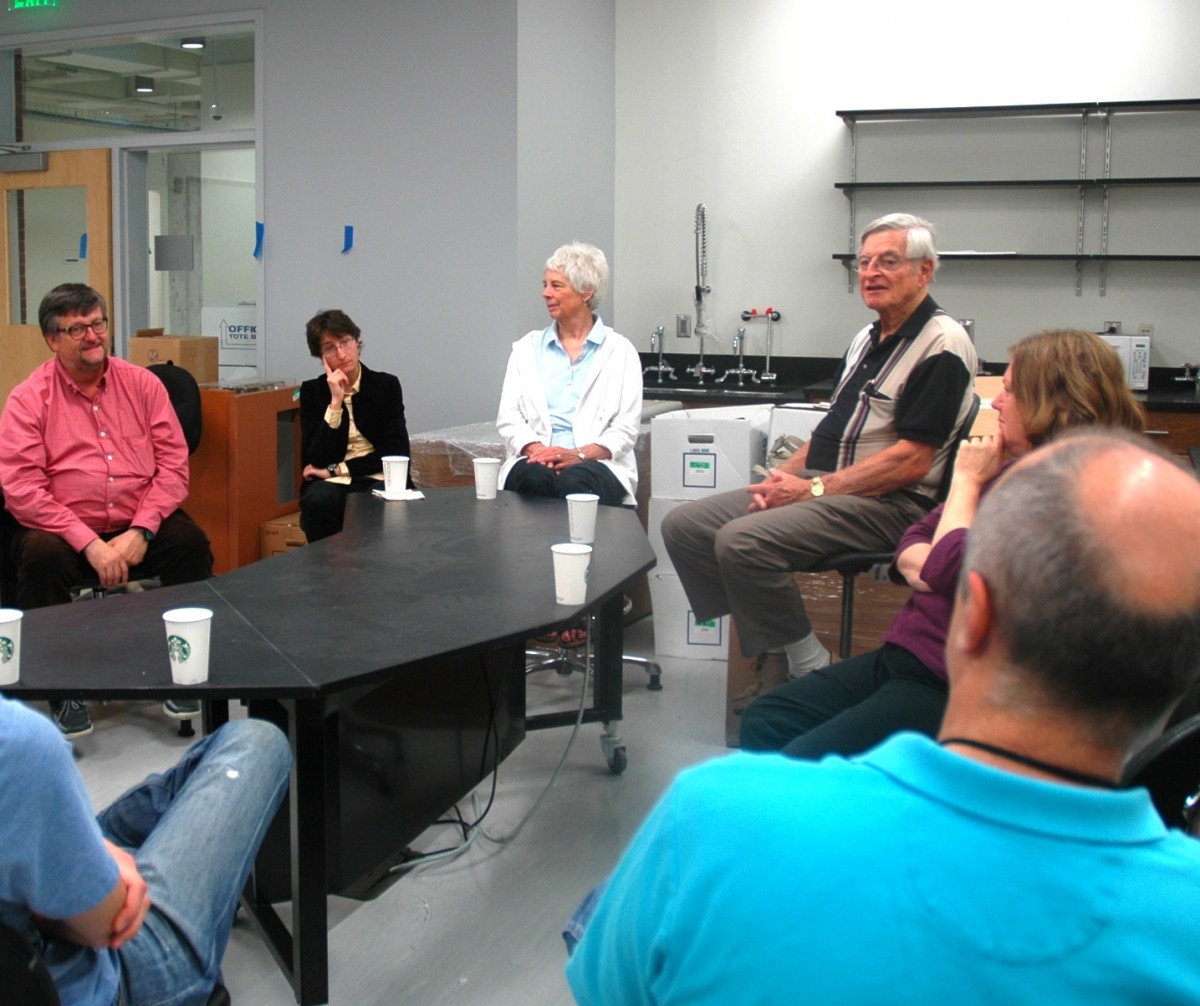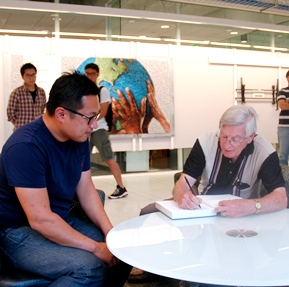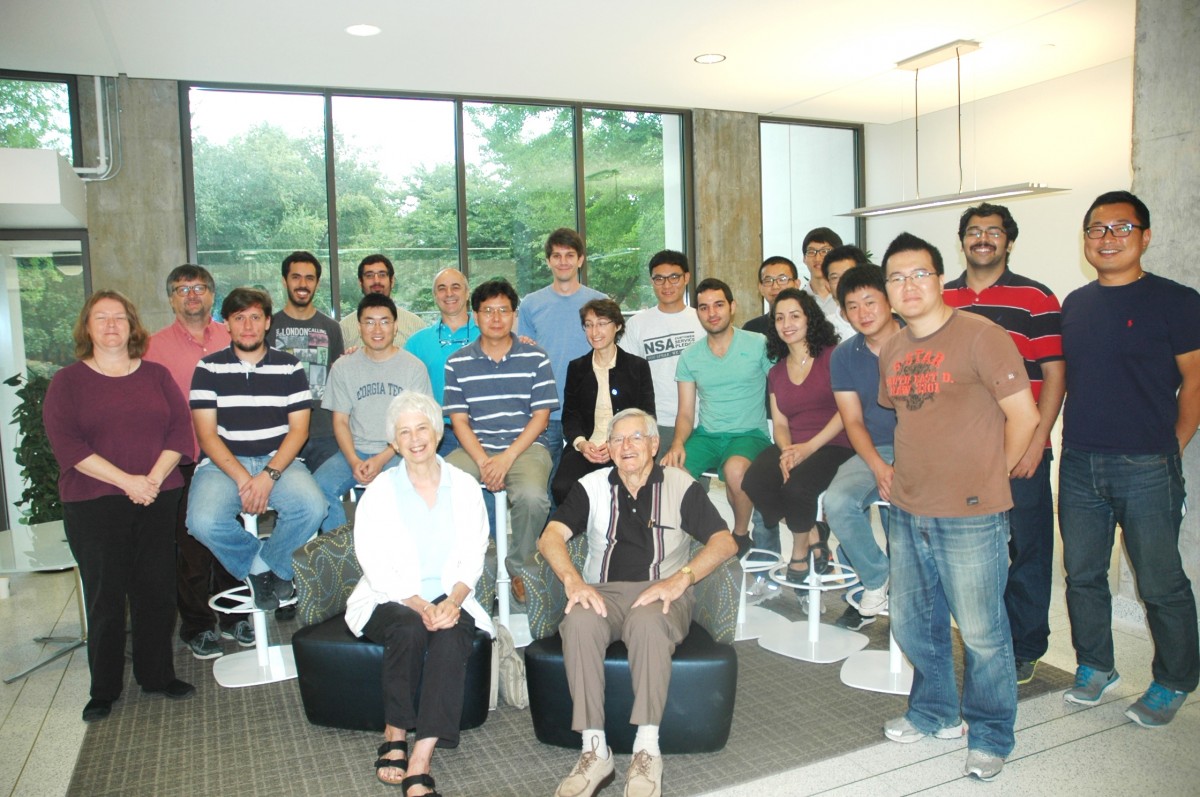For a couple doze n very lucky graduate students in CEE’s geotechnical engineering program, the school year started August 14, when noted civil engineering professor Dr. James K. Mitchell dropped by the Mason Building for an early morning chat.
n very lucky graduate students in CEE’s geotechnical engineering program, the school year started August 14, when noted civil engineering professor Dr. James K. Mitchell dropped by the Mason Building for an early morning chat.
“For his visit, we opened up the new soil lab for the first time,” said his longtime friend and colleague, CEE’s Dr. J. Carlos Santamarina.
“What a great way to start our new year in the Mason Building."
A University Distinguished Professor Emeritus at Virginia Tech and an Emeritus Cahill Professor of Civil Engineering at the
University of California at Berkeley, Mitchell was consulting on a project in Atlanta when he decided to visit his friend at Georgia Tech.
“He is the most famous and most well-respected expert in our field,” said Santamarina. “For those who were able to meet him, it will be a defining moment in their careers.”
 Though retired from teaching, Mitchell is well-known to serious students of geotechnical engineering. His textbook, “Fundamentals of Soil Behavior” is widely used and revered by CEE graduate students, one of whom brought a copy for Mitchell to sign. He is also one of only a few scientists who are members of both the National Academy of Engineering and the National Academy of Sciences.
Though retired from teaching, Mitchell is well-known to serious students of geotechnical engineering. His textbook, “Fundamentals of Soil Behavior” is widely used and revered by CEE graduate students, one of whom brought a copy for Mitchell to sign. He is also one of only a few scientists who are members of both the National Academy of Engineering and the National Academy of Sciences.
But when he joined CEE graduate students for an informal discussion, he did not let his reputation distance him. He asked for candor and questions. He got both.
One student wanted to know how the field had changed since Mitchell first received his Ph.D., more than 50 years ago.
“I started out at a school that allowed me to ask questions,” he said, referencing his early research, which focused on fundamental areas that were not considered mainstream.
“What I found when environmental geotechnical engineering came along in the 80’s and 90’s
was that a lot of what I had studied 25 years ago had coalesced into information that was needed.”
What advice would he give to today’s students, another student asked.
“Pursue your passion and avoid specializing too deeply, too early because you don’t want to get into a deep well and then find out that water is not to your liking,” he said.
What advice did you give your own children, another wanted to know.
“Well, what I told all of my students was ‘Failure has 1000 excuses. Success needs no explanation’ but there’s another one I like just as well: ‘Everything in moderation, including moderation.’”

